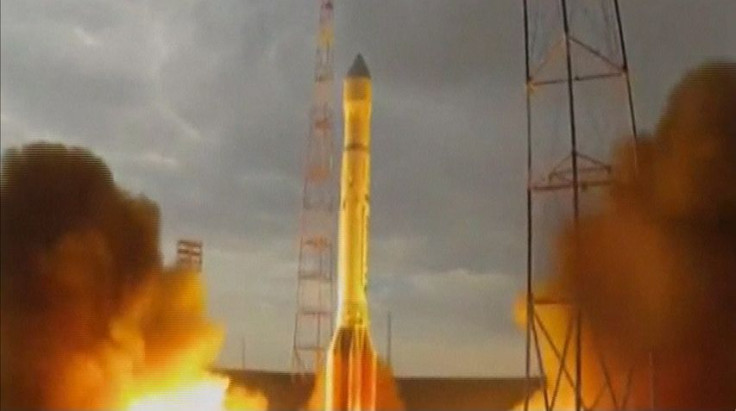Russian Proton M Rocket Crashes Hauling Mexican Satellite

A Russian Proton-M rocket hauling a Mexican satellite quickly malfunctioned after launch and crashed over Siberia on Saturday, reported Reuters via Moscow Times. The crash was just the latest in a series of mishaps for the Russian space industry.
The breakdown of the rocket came just minutes after it was launched from the Baikonur cosmodrome in Kazakhstan. The third stage of the rocket had a problem about 500 seconds after launch, according to Russian media, Reuters reported. The cause of the accident is still unknown but all launches of similar carrier rockets have been suspended. The Proton M had been carrying a MexSat-1 communications satellite.
The accident reportedly occurred at a height of about 100.4 miles and left the rocket almost entirely burned up in the atmosphere, according the a press release.
Saturday's crash was the latest misstep for the Russian space agency, and it has had numerous costly issues recently. Russia was forced to delay the return of three astronauts from the International Space Station (ISS) on Tuesday because of a late-April crash of a cargo ship, according to the BBC. The unmanned cargo ship, carrying supplies to the space station, lost contact with navigation systems after launch and began an uncontrolled descent back to Earth. The flight's plan was extended and numerous attempts to regain control of the ship failed. The Russian agency was forced to abandon the $51 million mission.
Proton rockets have been failing frequently and have taken a public hit in image, according to the BBC. The agency's workhorse rocket was originally designed to carry a nuclear warhead and made its first test flights in the mid-1960s. Just a few hours hours before Saturday's Proton rocket crash, a Russian spaceship -- docked at the ISS -- failed to ignite its engines and make a correction to the station's orbit, Russia media reported, according to Reuters. The report added that the lives of the ISS crew were not in danger.
© Copyright IBTimes 2024. All rights reserved.






















